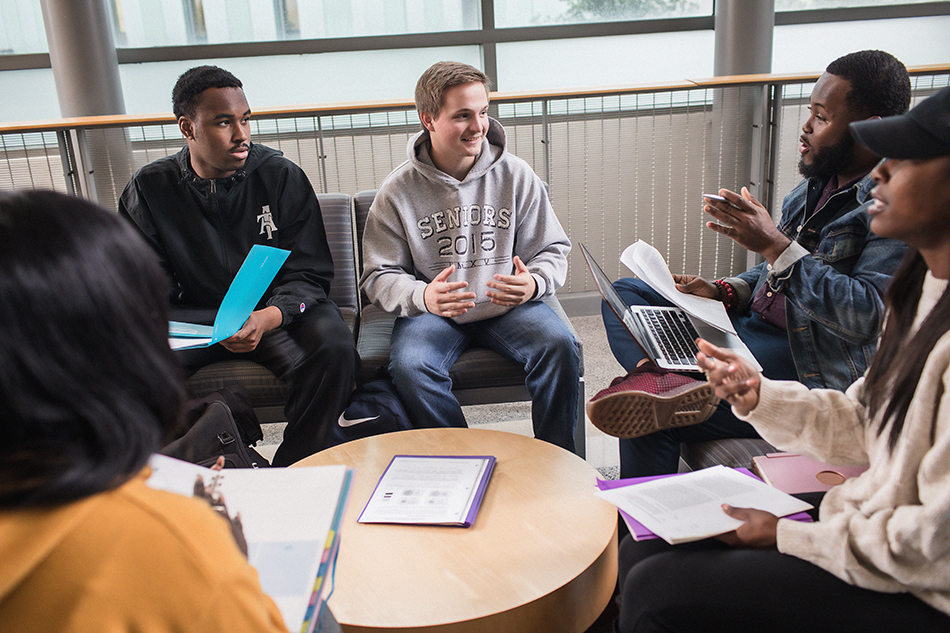Post High School Choices

High school can sometimes seem like it will go on forever, but it won’t. After school, you have to make a choice about what you want to do with your life. There are a number of factors involved in this decision. You may have financial constraints, or maybe you’re not sure what you want to do yet. Maybe you’re eager for a break from academics and want to try something new or see the world. Let’s examine some of the choices you could opt for after high school.
College
College is often a good first step to a career. Two- and four-year colleges offer a great opportunity to continue to learn, grow and broaden your understanding of the world. An education will expose you to concepts and experiences you wouldn’t often find outside of an academic setting.
Employers need people who are knowledgeable about their field and the world, so depending on your career choice, employers may require special certifications, an undergraduate degree, or even a graduate degree.
College, though, can be an expensive choice. You should think about what you want to get out of continuing your education. Think through the pros and cons before making the investment.
Get a Full-Time Job
The fact is, most of the jobs you can get with a high school diploma don’t pay very well, so if you’re doing this for purely financial reasons, think it through carefully. There’s a lot of financial aid out there for students in need, and things like grants and scholarships never have to be paid back. You can work up to 20 hours a week with work-study or a part-time job, and pursue full-time employment during summers.
On the other hand, if you already have a valuable skill set like programming or management experience, you may be able to get a well-paying job right out of high school. This could be a good way to save money for college or to get real experience while you figure out what you want to do. Some companies offer education assistance to their employees and make accommodations for employees pursuing degrees. The right kind of job experience can even help you get into a good college.
If you do decide to get a job after high school, make sure you have a plan, so you don’t get stuck in a job you don’t like or hit a pay ceiling because you don’t have a degree. College graduates earn, on average, $17,500 more a year than their peers with high school degrees, and high school graduates are three times more likely to be unemployed.
Join the Military
The military can provide experience, training, discipline, and purpose to the right kind of person, and it offers excellent education and employment opportunities. Enlisting in the armed forces after high school makes you eligible for tuition assistance and GI Bill benefits, so you can get a degree for free while you serve or afterward. You get paid a salary while you serve, and you can pursue specialized training in a number of fields. The military can become a lifelong career or a stepping stone to civilian pursuits—and military service looks great on a college application or resume.
Another option to consider, if you’ve got good grades and leadership skills, is ROTC. ROTC lets you go to college while training as an officer in the military branch of your choice, and they offer generous scholarships for qualified candidates. You must commit to a term of service after you graduate, but you’re guaranteed a job and your rank (and pay) will be higher than if you’d just enlisted.
The military isn’t for everyone, of course. You need to be physically fit, good at taking orders, and willing to commit to several years’ service that may include deployment during wartime. If you do decide on the military instead of, or as a complement to college, make sure you’ve carefully considered your options, and talk to others who have done the same.
Gap Year
Some students choose to take a “gap year”—a one-year break from academics to allow them to learn more about themselves, discover more about options or serve others. It’s important to plan such a year carefully to ensure that it’s as valuable as possible.
If you want to see more of the world and make a difference in it, you may consider joining the Peace Corps or AmeriCorps before deciding on a college. Peace Corps volunteers work in communities across the globe to improve the lives of people and foster education and economic development. AmeriCorps volunteers serve domestically to improve education, public health and safety, and the environment. The Peace Corps tends to require a bachelor’s degree for most positions, but there are some opportunities for high school grads. One disadvantage to joining post-high school instead of after college is that you miss out on its biggest benefit: federal loan forgiveness. So, you may want to consider postponing service until after you complete a degree. AmeriCorps may be a good choice if you want a shorter service term and a position closer to home.
Deciding to go to college or postpone college is a big decision, so make sure you talk to your counselor and parents about it and research alternatives carefully. Taking a gap year or two can be a productive, life-enriching choice, but only if you have a plan. Check out this article from the National Association for College Admission Counseling with some good ideas and pointers. Remember that it can be difficult to go back to school if you take too much time off.